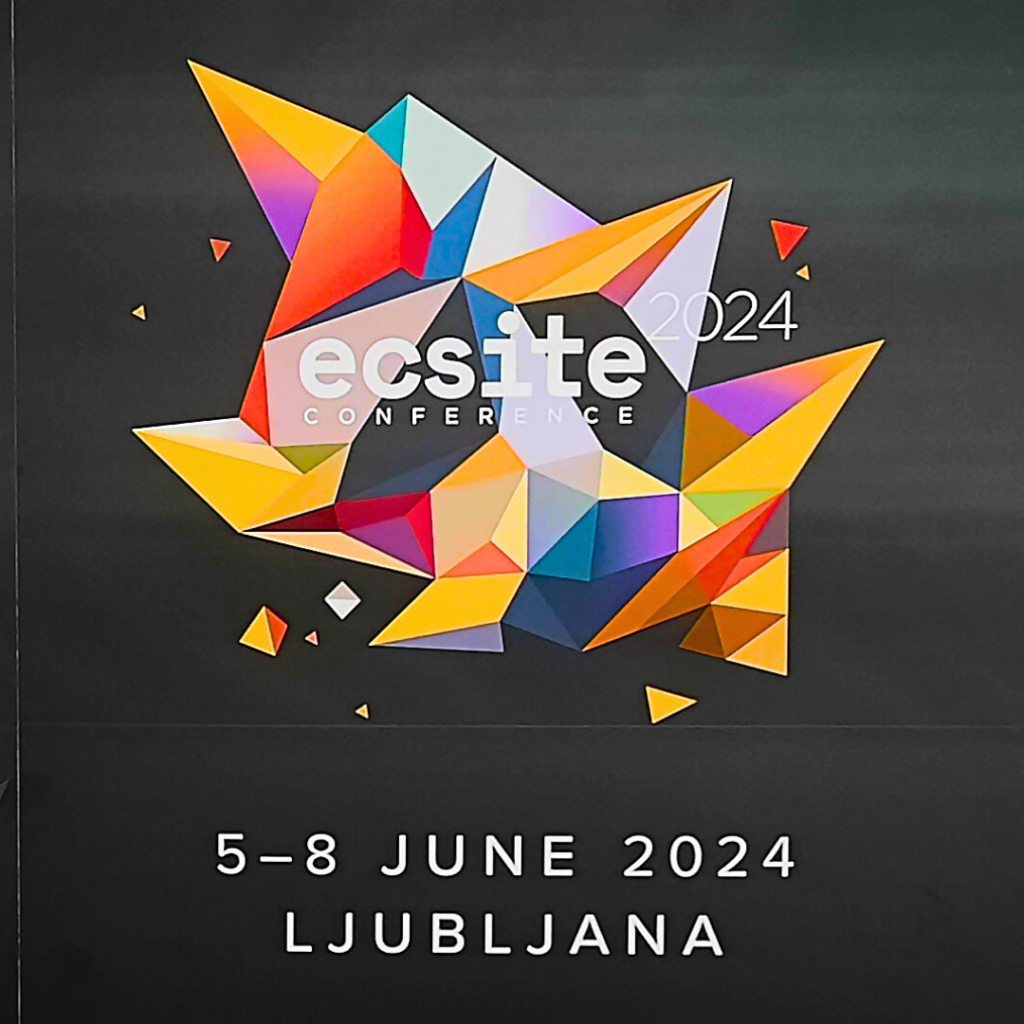Beginning of June 2024, Prof. Dr. Olaf Kramer and Anna Köhler will travel to the international Ecsite conference in Ljubljana, Slovenia.
At the international "AI Spotlight Showcase" on Thursday, June 6th, each speaker will have seven minutes to present their topic. The event brings together theorists and practitioners from around the world to exchange ideas and inspire each other. Topics range from Andreas Matt's I AM A.I. – communicating core concepts of AI to Jennifer Wong's AI: Who’s Looking After Me? At Science Gallery London and Olivier Bielecki's AI-powered translation at Universcience. A list of all topics is noted here.

In this lightning round, Anna Köhler from the RHET AI Centre introduces the reading series "A Different Look at AI", organised and conducted by Unit 4 of the RHET AI Centre. These readings took place in Tübingen on three occasions: Unsere Arbeitswelt [Our Working World] with Berit Glanz, Täuschung [Deception] with Tom Hillenbrand, and Schöne Neue Textwelt? [Brave New Text World?] with Jörg Piringer. The evenings consisted of readings followed by expert discussions, with the audience participating via Mentimeter. The selected literature aimed to make the complex topic of AI more accessible and stimulate discussions.
In her presentation, Anna Köhler reflects on this approach and explains how the data collected via Mentimeter were used to shape future readings and other science communication formats. The analysed datasets helped to better understand the associations and attitudes of visitors towards AI topics. We aim to explore the benefits of this interactivity to foster dialogue among participants.
Following the lightning round, there will be another panel of approximately one hour, themed "Keeping Our Fingers on the Pulse of AI", where some of the projects can be further discussed, including "A Different Look at AI" from the RHET AI Centre.
This panel aims to reflect on the challenge of assessing the impact of AI. AI is deeply integrated into our global reality with both positive and uncertain outcomes. The central question is whether we should critically evaluate the application of AI or explore its untapped potential — and whether such considerations might come too late given the rapid technological development. Or is AI just a temporary tool, whose hype will diminish once we introduce newer, superior technologies?





